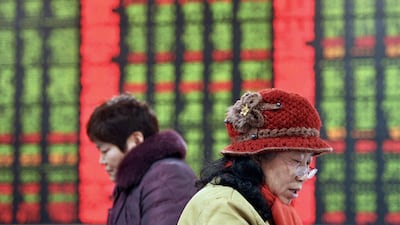The year 2015 marked one of the worst years for oil prices and resulting government revenues; the backbone on which most of the GCC economies ride. For the year now taking shape, three main risks loom for the GCC economies: oil’s continuing slide, the draining of liquidity, and China’s slowdown.
Oil: when will this slide end?
Opec member countries produce about 37 per cent of global crude oil, and disagreements over production ceilings have already affected some of the members. Countries, such as Venezuela, Nigeria and Algeria that rely on oil exports are facing widening fiscal and current account deficits, and do not have the luxury of oil surpluses. Even for GCC exporters, assuming a low oil price environment persists, public foreign assets could decline substantially over the next five years, while gross public debt could rise to 59 per cent of GDP.
After clocking more than $1 trillion annually in export revenues during the period 2012-14, GCC economies will experience a 23 per cent fall in export revenues in 2015, mainly driven by Saudi Arabia, which accounts for close to half the estimated $250 billion loss. Lower revenues for the government along with weakening balance sheets could spill over to the broader economy, if the situation persists.
Liquidity crunch: draining resources
In the banking sector, loss of deposit growth from oil revenues coupled with governments drawing down on their savings has led to short-term pressures on the money market, leading to spurts in overnight lending rates. Government borrowing (sovereign bonds) has been on the rise, which could crowd out the private sector and deprive them of credit facilities. GCC sovereign bond issuances during the first nine months of 2015 were worth $47.7bn, which is higher than the recent peak during the previous oil fall in 2009 ($43.0bn), and significantly higher than the whole of 2014 ($2.8bn).
With the US hiking interest rates, rise in government borrowing will make matters difficult for the private sector to grow. Reduced opportunities to lend amid an environment of increasing short-term rates would constrain net interest margins, and subsequently lower profitability for GCC banks. This could in turn affect spending by banks on other areas such as technology, which is vital since the adoption of newer facets of banking such as e-commerce and m-commerce could open doors for tapping the younger generation customers. A proxy to that is the increase in credit default spreads.
The ultimate impact of the fall in liquidity will be on the cost of capital, which will spike. Stock market liquidity as characterised by stock turnover ratio has fallen in the recent past, post the global financial crisis. While positive events such as the inclusion of the UAE and Qatar in the MSCI Emerging Markets index and the announcement of Saudi Arabia opening up its market for direct investment by foreigners contributed to renewed interest and market activity, liquidity continues to be low in GCC market against historical standards.
In the debt markets, weaker bidding by Gulf banks is causing corporate spreads to widen gradually. Wider spreads demanded by bond investors implies a significant deterioration of liquidity in the banking sector, which adversely affects the loan market. Execution of a growing pipeline of deals from the Middle East is under jeopardy because of a toxic combination of reduced local liquidity and limited international interest. While there is a demand for sovereign issues, corporate issues have faced withdrawals after the liquidity dried up in the primary markets.
China: investors on tenterhooks
China accounted for more than $100bn worth of GCC exports during 2014. By 2020, the largest share of GCC exports will go to China, estimated at about $160bn. China will also dominate the GCC import market, providing about $135bn of goods to the GCC by 2020, which is nearly double the value in 2014.
GCC trade with China grew more rapidly during 2010-13 than with any other significant trade partner, at a rate of more than 30 per cent for exports and 17 per cent for imports. The stronger growth in exports, from higher energy prices and rising Chinese demand, caused the GCC’s 2009 trade deficit to turn into a sizeable surplus.
China’s economy is facing multitude of risks, and this is expected to have a domino effect on its trading partners, primarily in the GCC, and global markets at large. China’s borrowing binge after the 2008 global financial crisis has led to burgeoning rise in credit, which stood at 240 per cent of GDP at the end of 2015’s third quarter, up from 125per cent in 2008. Nonperforming loans had already climbed by a record 161tn yuan (Dh89.9tn) and rising credit growth in a period of slow economic growth is magnifying the indebtedness.
How China fares in 2016 will have far-reaching consequences across the globe, and especially in the GCC.
M R Raghu is the managing director of Marmore, a Kuwait-based research house focusing on economies in the Middle East and North Africa

